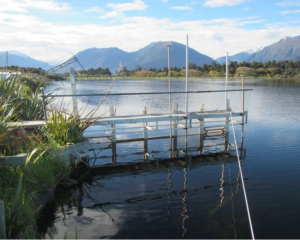
Allowing 16-year-olds to vote, moving all councils to the single transferable vote (STV) system, increasing councillor remuneration, and moving to four-year terms are among 29 recommendations in the draft Future for Local Government report.
The draft report was compiled by an independent panel established by Local Government Minister Nanaia Mahuta 18 months ago.
It follows local council elections earlier this month, where voter turnout was once again low across the South.
It did increase in some areas, including Dunedin, which had record turnout at 48.21%. But it plummeted in others, including Central Otago which fell from 56.27% in 2019 to 46.85% this year.
Many of the recommendations in the draft report were aimed at increasing engagement with local government.
Southern mayors contacted by the Otago Daily Times were generally open to lowering the voting age to 16.
Clutha Mayor Bryan Cadogan said he took inspiration from young people who were politically active.
"At [Clutha] Youth Council we have some really solid and mature thinking, and it’s also new and not cluttered with boomer ideas so let’s get into it."
Queenstown Lakes Mayor Glyn Lewers said if it created more engagement, he would be all for it, but he wanted to see if there was research that would back that up.
However, Invercargill Mayor Nobby Clark felt widening the age range of voters was not necessary, and said more should be done to determine why people were not engaging with local politics already.
Southland Mayor Rob Scott took a similar view, although if the age were to be lowered, he felt more civics education in schools would be crucial.
Mr Cadogan, Mr Scott and Mr Lewers also supported increased remuneration, saying it would increase diversity on councils, while Mr Clark was opposed.
All four were favoured extending council terms as it would give councillors more time to get things done.
Mr Clark wanted to go further and introduce five-year terms.
As for possibly shifting to STV from the first-past-the-post system favoured by most councils, mayors were less keen.
The panel believed STV promoted more diversity and was more representative than the "winner takes all" first-past-the-post system.
In the South, Dunedin is the only council to use the STV system.
Mr Lewers said when the council did its last representation review, it was told by an expert that STV was not as effective if the candidate pool was below a certain number.
He believed STV was quite difficult to explain to the public, so if there was to be a shift, there would need to be an effort to explain the process better.
The complexity of the system was also a concern for Mr Clark.
Mr Cadogan said he was ambivalent about it, although he though the panel might have recommended the opposite to a blanket STV approach.
But he acknowledged giving each council the power to decide on its own electoral system meant uniformity across the country would be lost.
Mr Scott thought consistency would be a positive, but questioned whether that should be the STV system as he believed it was more complicated and that could impact voter engagement.
The panel also raised a series of questions in the report, including what steps and considerations would enable both Te Tiriti and capability-based appointments to be made to councils.
Panel chairman Jim Palmer said when it came to the idea of mana whenua appointees, the conversation was more nuanced than "one person, one vote".
But, he said, individual councils should be able to decide how many appointees they would have.
Mr Clark was totally opposed to the idea, while Mr Lewers thought a national discussion about appointees was needed.
Mr Scott said the prospect of appointees depended on the make-up of each council and councillors had a broad range of skills.
Submissions on the draft report close on February, 28 with the final report due to be delivered to the minister by June. — Additional reporting RNZ
Recommendations
Key Future for Local Government draft recommendations
- The Electoral Commission takes over running local government elections
- The voting age is lowered to 16
- The single transferable vote system is adopted for all councils
- Council terms shift from three years to four
- Councillor remuneration is reviewed
- Central government reviews requirements for engaging with Maori across local government legislation










